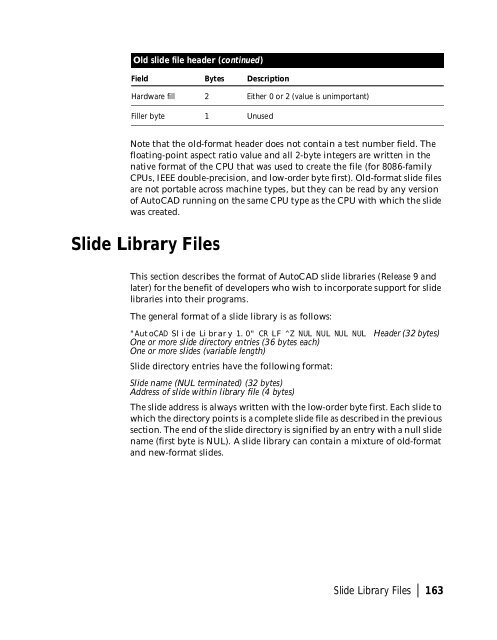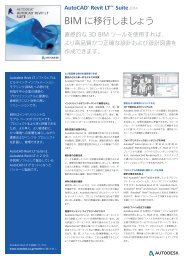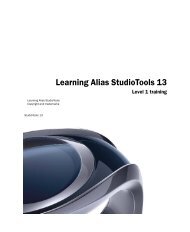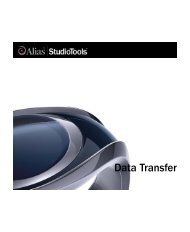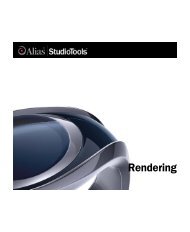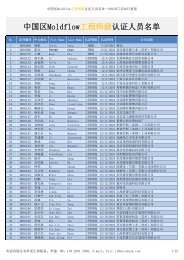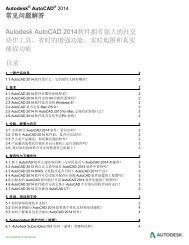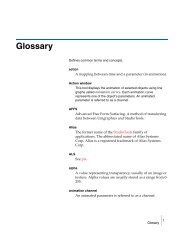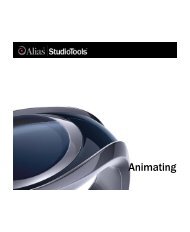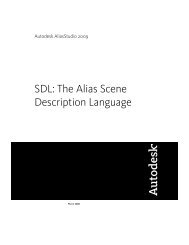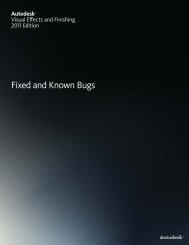You also want an ePaper? Increase the reach of your titles
YUMPU automatically turns print PDFs into web optimized ePapers that Google loves.
Old slide file header (continued)<br />
Field Bytes Description<br />
Hardware fill 2 Either 0 or 2 (value is unimportant)<br />
Filler byte 1 Unused<br />
Note that the old-format header does not contain a test number field. The<br />
floating-point aspect ratio value and all 2-byte integers are written in the<br />
native format of the CPU that was used to create the file (for 8086-family<br />
CPUs, IEEE double-precision, and low-order byte first). Old-format slide files<br />
are not portable across machine types, but they can be read by any version<br />
of AutoCAD running on the same CPU type as the CPU with which the slide<br />
was created.<br />
Slide Library Files<br />
This section describes the format of AutoCAD slide libraries (Release 9 and<br />
later) for the benefit of developers who wish to incorporate support for slide<br />
libraries into their programs.<br />
The general format of a slide library is as follows:<br />
"AutoCAD Slide Library 1.0" CR LF ^Z NUL NUL NUL NUL Header (32 bytes)<br />
One or more slide directory entries (36 bytes each)<br />
One or more slides (variable length)<br />
Slide directory entries have the following format:<br />
Slide name (NUL terminated) (32 bytes)<br />
Address of slide within library file (4 bytes)<br />
The slide address is always written with the low-order byte first. Each slide to<br />
which the directory points is a complete slide file as described in the previous<br />
section. The end of the slide directory is signified by an entry with a null slide<br />
name (first byte is NUL). A slide library can contain a mixture of old-format<br />
and new-format slides.<br />
Slide Library Files | 163


